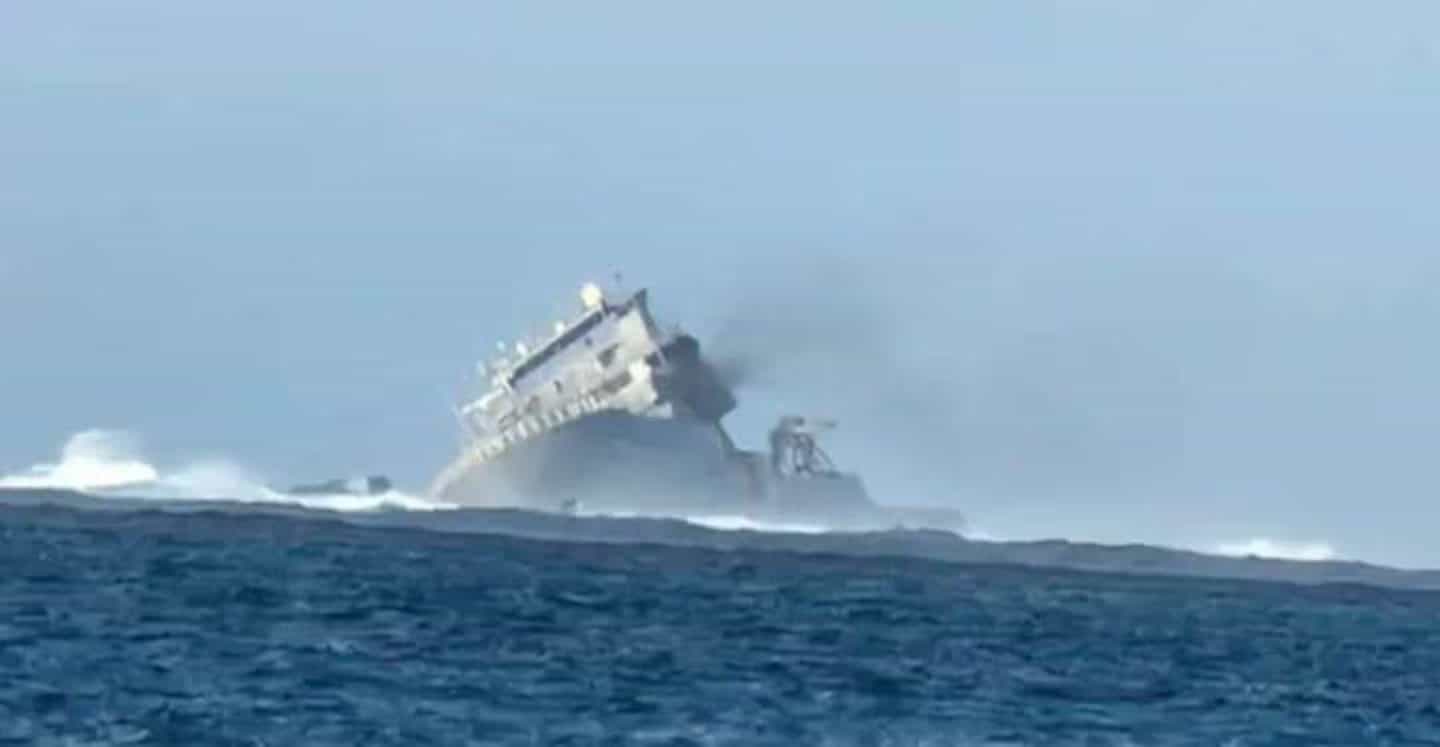An investigation into the sinking of the HMNZS Manawanui will “get to the nub” of what happened when the ship sank, Defence Minister Judith Collins says, as she warns against a “rush to judgment” about last week’s incident.
Collins recounted details about the incident in an interview with Q+A, where she also spoke on New Zealand’s “very significant” credibility gap in defence capability.
The HMNZS Manawnui sank on a coral reef after it ran aground and caught fire. All of its 75 crew and passengers safely evacuated. It remains unclear why the vessel ran aground off the coast of the Samoan island of Upolu.
The Defence Minister praised a decision to evacuate the ship, which she again reiterated when asked if she had created the impression of being overly protective of the crew.
“If people had not been evacuated, when they were, we could have been bringing home some body bags,” she told Q+A.
“What I said to the Prime Minister is, ‘We could’ve had 75 body bags coming off that flight, and I am just so grateful nobody died. I am devastated by the loss of a ship, but I don’t know that I could’ve coped with 75 body bags.”
In her interview, Collins was also asked about the environmental impacts of the oil leaking from the HMNZS Manawnui and statements released by officials in Samoa.
She said the cause of the sinking may become known in a month’s time, with the public release of an interim report into the incident.
“That will be what the inquiry looks at. We cannot rush to judgment,” she said.
“We don’t know who’s at fault, what level of fault there is, and I expect the Court of Inquiry will find that and that will be released. Defence has been really clear back to me, as well, that they expect to release those findings with only redactions around some privacy issues, commercial sensitivity and national security, but they will get to the nub of it.”
Collins said she wasn’t aware of any engine issues the HMSNZ Manawanui could’ve had before the Samoa mission following speculation about possible causes.
Collins also spoke of her post-sinking conversations with Commander Yvonne Gray, who had previously been the captain of the $100 million (US$60 million) ship.
‘Fish covered in oil’
Meanwhile, fishermen on the coast of Safata in Samoa were told to discard fish covered in oil from the New Zealand naval ship HMNZS Manawanui as authorities confirmed leakage of 200,000 litres of diesel.
The ship struck a reef last Saturday and sank the next morning. The incident has raised concerns about an impending ecological disaster.
Fishermen from various villages in the Safata district alerted authorities after finding their catch covered in oil and have been told to refrain from fishing in the area.
The Marine Pollution Advisory Committee (MPAC) confirmed approximately 200,000 litres of diesel had leaked into the ocean and substantial damage to the coral reef.
Senior matai of Safata district, Tuia Paepae Letoa told the Samoa Observer the discovery of fish covered in oil was reported for further investigation.
He said the community is starting to feel the effect of not being able to rely on marine life for their daily food source and income.
“Fishermen went out at sea and came with fish that was covered with oil, some were not aware that they could not go out to fish as this was their normal routine,” said Tuia.
“The wind and current have carried the oil towards the neighbouring villages and seawater is carrying it towards the Safata mangrove reserve. It is a very serious problem for the district…not only is this hurting our livelihood, damaging the reef and coast, it is also spreading to our other reserves we depend on.”
The HMNZS Manawanui is the biggest environmental disaster for the district. This has prompted district chiefs to call for an urgent meeting next week.
Tuia said the New Zealand Government is aware of the responsibility on their shoulders from the incident and international laws governing such disasters.
He said the district matai will convene a special meeting next week to discuss the Manawanui disaster adding the elders will not sit idle and will act for their future generation.
“We talk about the diesel, but we do not know if there are other liquid chemicals on the ship that we are not aware of and it is washing up on the shore undetected…it might not impact us now but we are thinking about the future generation.”
